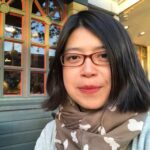Hsing-Fen Tu
Department of Psychology, Uppsala University
Hsing-Fen Tu

| HSING-FEN TU, PhD, MSc. |
| Postdoctoral Researcher, Department of Psychology, Uppsala University, Uppsala, Sweden |
| ACADEMIC EXPERIENCE | |
| 2024
Oct. – |
Postdoctoral Researcher with a focus on “Learning and Brain Plasticity throughout the Life Span”, Department of Applied Educational Science, Umeå University, Sweden
Supervisors: Prof. Dr. Bert Jonsson and Prof. Dr. Lars Nyberg |
| 2024
(May – Sep.) |
Postdoctoral Researcher, Department of Psychology, Uppsala University, Sweden
Supervisor: Prof. Dr. Gustaf Gredebäck |
| 2024
(Jan. – Mar.) |
JSPS Short-term Postdoctoral Fellowship for Research in Japan, Center for Baby Science, Doshisha University, Kyoto, Japan. Supervisor: Prof. Shoji Itakura |
| 2023 | Scientific Assistant (80%), Region Uppsala, Uppsala University Hospital, Uppsala, Sweden. (with Prof. Alkistis Skalkidou working on the Swedish National Cohorts and Register Data) |
| 2022 (Oct.) | Invited Doctoral Researcher, Center for Baby Science, Doshisha University, Kyoto, Japan.
Invited by Prof. Dr. Shoji Itakura |
| 2020–2023 | Lab Coordinator, Scientific Assistant, Child and Baby Lab, Department of Psychology, Uppsala University, Sweden. |
| Feb. 2018–
Jul. 2023 |
Doctoral Researcher, Max Planck Institute for Human Cognitive and Brain Sciences, Leipzig, Germany.
Supervisor: Prof. Dr. Arno Villringer |
| 2019
(Jul. – Sep.) |
Visiting Doctoral Student, Visual Attention Lab, Brigham & Women’s Hospital, Harvard Medical School, Boston, USA.
Supervisor: Prof. Dr. Jeremy M. Wolfe |
| DEGREES | |
| 2023 | PhD (Department of Neurology, Max Planck Institute for Human Cognitive and Brain Sciences) in Medical Science (Dr. rer. med., Magna Cum Laude), Leipzig University, Leipzig, Germany.
Supervisor: Prof. Arno Villringer. Co-supervisor: Prof. Gustaf Gredebäck |
| 2019–Jul.2023 | IMPRS Research School Training at International Max Planck Research School on Neuroscience of Communication: Function, Structure, and Plasticity, Leipzig, Germany. |
FURTHER INFORMATION
| Countries | Sweden; | ||||
|---|---|---|---|---|---|
| Topics | LTC and people with mental health conditions; Outcome measurement in LTC; | ||||
| Methods | Longitudinal data analysis; Mixed methods; Observational studies; Psychometric testing; Quantitative data analysis; Quasi-experimental methods; Questionnaire; Systematic Review; Theory and frameworks; Time series analysis; Translation and cultural adaptation of instruments; | ||||
| Role | Research; | ||||
| Interest Groups | Climate Change and LTC; Data Science; Quasi-experimental methods; | ||||
| ORC.ID | 0000-0003-1787-3548 | ||||
| https://www.linkedin.com/in/hsingfentu/ | |||||
| Research interests | Child development; Peripartum mental health; Attentional control; Eye-tracking paradigm; Cross-generational impact |
||||
| Key publications |
|

